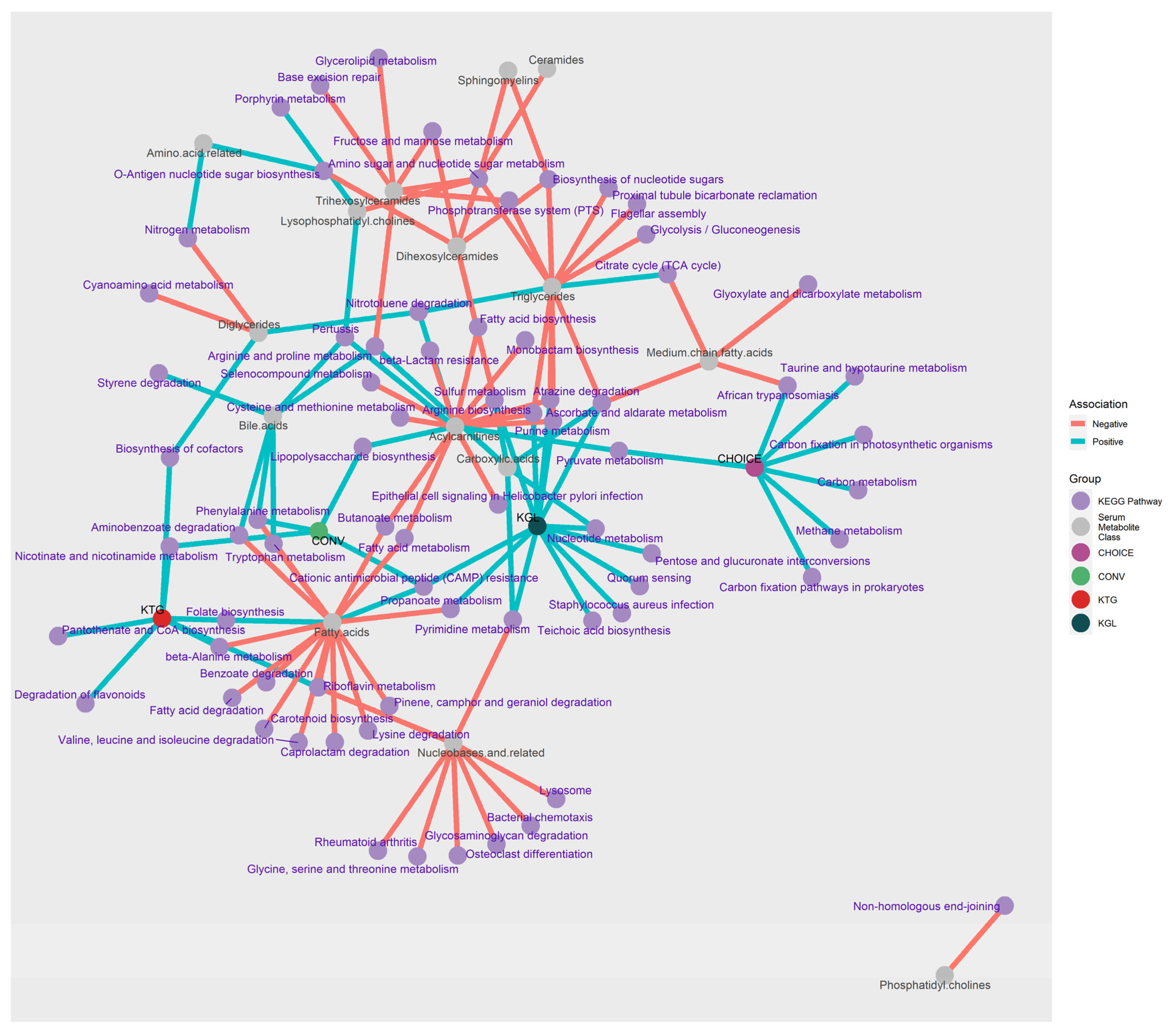Gestational diabetes mellitus (GDM) is a common condition affecting pregnant women, particularly those with pre-existing obesity and insulin resistance. The maternal microbiome undergoes significant shifts during pregnancy, which may impact metabolic health and pregnancy outcomes.
This study investigates the impact of dietary interventions on the gut microbiome and plasma metabolomic profile in pregnant women with GDM. Participants were randomized to a diet higher in complex carbohydrates (CHOICE) or a conventional GDM diet (CONV). The study aimed to understand the associations between diet, microbial taxa, and plasma metabolites, shedding light on potential mechanisms underlying metabolic changes in GDM.
Methods
- Study Design: Randomized controlled trial involving pregnant women diagnosed with GDM.
- Participants: Women were randomized into two diet groups: CHOICE (n = 18) and CONV (n = 16).
- Dietary Interventions:
- CHOICE Diet: 60% complex carbohydrates, 25% fat, 15% protein.
- CONV Diet: 40% carbohydrates, 45% fat, 15% protein.
- Both diets were eucaloric with similar fiber content.
- Metabolomic Analysis: Plasma samples analyzed for over 600 metabolites.
- Microbiome Analysis: Gut microbiome composition analyzed through metagenomics.
- Statistical Analysis: Associations between diet, microbial taxa, and metabolites were assessed.
Key Findings
Metabolomic Profiles:
- CHOICE Diet:
- Increased trimethylamine N-oxide (TMAO), indoxyl sulfate, and several triglycerides.
- CONV Diet:
- Increased hippuric acid, betaine, and indole propionic acid, suggesting a healthier metabolome.
- Enrichment of amino acid metabolism pathways and beneficial tryptophan metabolites.
Microbial Composition:
- CHOICE Diet:
- Enriched in carbohydrate-metabolizing genes and beneficial taxa such as Bifidobacterium adolescentis and Ruminococcus bromii.
- Reduced inflammatory gene pathways compared to CONV diet.
- CONV Diet:
- Enriched in Prevotella copri, associated with worse insulin resistance and inflammatory pathways, including antimicrobial resistance and lipopolysaccharide biosynthesis.
Metabolite Associations:
- Indole Propionic Acid was associated with health benefits and negatively associated with type 2 diabetes (T2D).
- Hippuric Acid was linked to better insulin secretion and lower fasting glucose levels.
- Betaine was shown to lower circulating triglycerides.
Latent Metabolic Groups:
- Identified two latent metabolic groups not associated with diet:
- One group with relatively higher fasting triglycerides.
- Another group with less of a decrease in fasting glucose.
- Metabolic pathways negatively associated with lipid levels were positively associated with fasting glucose.
This study highlights the complex interactions between dietary interventions, gut microbiome composition, and plasma metabolites in pregnant women with GDM. The CHOICE diet was associated with beneficial microbial taxa and fewer inflammatory pathways but increased triglycerides, while the CONV diet was linked to a healthier metabolome profile. Personalized dietary approaches tailored to individual metabolic profiles and microbial communities may optimize maternal-fetal health outcomes in GDM diet interventions.
Link to the article : https://tinyurl.com/nb9uhcdv
